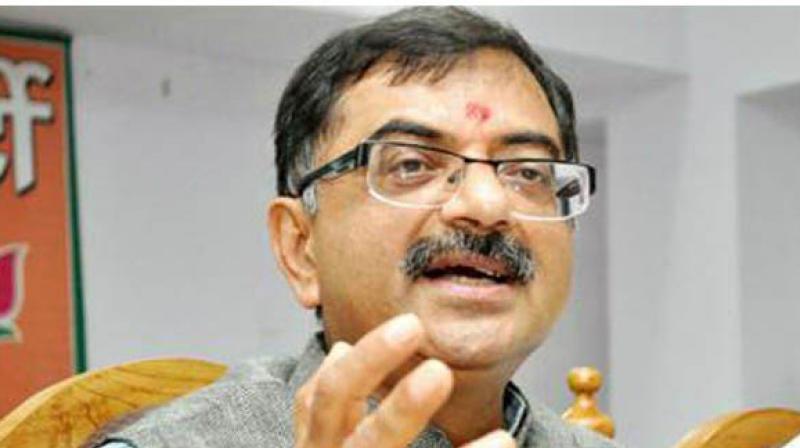Former BJP MP tries to deny racism, shows it exists

Hyderabad: Former BJP MP Tarun Vijay brought to the fore the deeply ingrained racism in the Indian mind, suggesting that “we live with” those from South India who are “black”.
“If we were racist, why would we have the entire south? Which is you know... completely Tamil, you know Kerala, you know Karnataka and Andhra. Why do we live with them? We have blacks, black people all around us,” Mr Vijay said.
Mr Vijay did not explain who “we” were, given that several widely held theories suggest that the Dravidians, whose skin is of colour, were the original inhabitants of the sub-continent.
He was speaking during a panel discussion on Al-Jazeera and seeking to defend India against the charge of racism following attacks on African students. He claimed that people with African ancestors had been living amicably in Maharashtra and Gujarat.
Racism not well hidden
Indians “worship black gods” and referred to Lord Krishna, he said. Of course, when faced with a barrage of criticism, Mr Vijay promptly apologised and insisted what he meant was not what he said — “my apologies to those who feel I said different than what I meant.”
Mr Vijay, born in Dehradun, now in Uttarakhand, is also the only non-Tamil winner of the Thirukkural Thuthar award — ambassador of the epic Thirukkural composed by the Tamil saint Thiruvalluvar — and has campaigned to make Tamil a national language — something that was seized upon by those taking his side on social media and in debates on TV channels.
His statement on TV blew all this away, exposing the deep divides and biases that exist in society, something that decades of papering over has not helped hide. It also alluded to the purported perception of the RSS view of Indians: North Indian, male and upper caste.
Mr Vijay’s statement was one of a piece in which political leaders, mainly from north India, make comments on those who are not like themselves.
External affairs minister Sushma Swaraj had, then in the Opposition, said in Parliament on February 5, 2014, following an attack on a student from Arunachal Pradesh: “People with flat noses are as much Indians as those with sharp ones.”
JD(U) president Sharad Yadav, speaking on the insurance Bill in Parliament on March 13 2015, took off at a tangent. Amid laughter from his male colleagues, he said: “Your god is dark like Ravi Shankar Prasad (present in the House), but your matrimonial ads insist on white-skinned brides... The women of the south are dark but they are as beautiful as their bodies...We don't see it here. They know dance.”
Worse has been said, of course, but these were MPs speaking in Parliament. Hundreds of people took to social media to protest Mr Vijay’s comments.
Mohan Guruswamy, chairman, Centre for Policy Alternatives, New Delhi, wrote on his Facebook page: “If South Indians are dark or black so what? We came here first and are proud we are not polyglots or mongrels.” He also recalled the song from the 1965 Manoj Kumar starrer Gumnaam: Hum kaale hain to kya hua dilwale hain... (So what if we are dark, we are large-hearted)
“Look around you Mr Tarun Vijay...Us black people have been the back bone and brains of our country ,while people like you are still living in the dark ages and are trying your best to destroy the Social and Religious fabric of our country. Thank God for us ! Way to go South Indians,” wrote one Jayashree Shankar.
Reacting to Mr Vijay’s comment, social activist and CPM leader Brinda Karat said, “His comments reflected his mind, what is in someone’s mind will come out in the tongue.”
Prof G. Haragopal said the BJP ideology was Aryan-centric and they believed Aryans were greater than anybody else. “All south Indians were used to be recognised as Madrasis till they start realising that there are different people in different states,” he said.
Reacting to Mr Vijay’s comment, MANUU Chancellor Zafar Sareshwala: “Yes, we are racist. Where is the doubt? Let us be honest. You see matrimonial advertisements in any paper in the country, everyone desires to marry girls with fair complexion. We discriminate people in different ways.”

